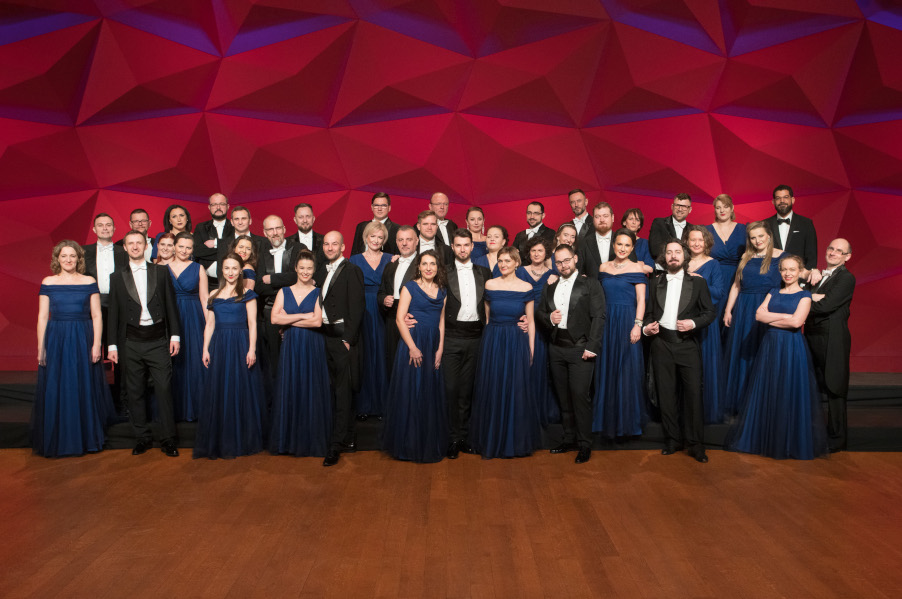Krzysztof Penderecki – one of the great masters of 20th century music – wrote sacred choral music throughout his career. The composer’s work has evolved over the years, which of course also found its reflection in the style of works he composed. In the programme of the NFM Choir concert led by its artistic director Lionel Sow, various works of the composer, who died in 2020, will be juxtaposed with famous 20th-century French choral works. In the last century, Polish and French musical culture developed in widely different conditions. Surprisingly, this programme will allow us to see that they have a lot in common.
At the beginning, we will hear a composition by another native artist, who has undoubtedly left a considerable mark on world culture, that is Henryk Mikołaj Górecki’s sacred composition Euntes ibant et flebant from 1972. The presentation of works by Penderecki will begin with Song of the Cherubim – one of many examples of inspiration from Orthodox church music in his oeuvre. Dedicated to Mstislav Rostropovich, the piece filled with fervour uses the text of the Hymn to the Holy Trinity, which accompanies the opening of the Templon in the Orthodox liturgy. We will also hear Stabat mater, with which the avant-garde composer surprised critics and audiences in 1962, and which he later included in his famous Passion according to St Luke.
The NFM Choir will also present music created by Penderecki in the last period of his life – already in the 21st century. We will listen to the contemplative hymn O gloriosa virginum from 2009, which may be a big surprise for those who only know the sonoristic aspect of the composer’s work. We will also hear Agnus Dei – the fifth movement of the Polish Requiem, dedicated to Cardinal Stefan Wyszyński and completed in the first half of the 1980s.
The first French piece to be presented by the NFM Choir will be Alfred Desenclos’s setting of the introit Nos autem, sung in churches during the celebration of the Feast of the Holy Cross. The biblical, allegorical text of The Song of Songs was set by Jean Yves Daniel-Lesur. Daniel-Lesur in his youth, together with Olivier Messiaen, belonged to the group La Jeune France. The most sensual book of the Holy Scripture will return later in the piece Nigra Sum by the contemporary artist Caroline Marçot. The programme also includes a composition by Francis Poulenc, who had been fascinated by the possibilities of human voice since the 1930s and created a setting of the antiphon Salve Regina in 1941. At the end, the singers will perform a miniature by Maurice Ravel, Trois beaux oiseaux du Paradis, composed during World War I.

